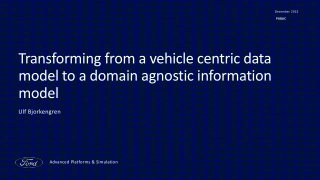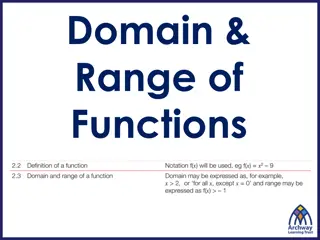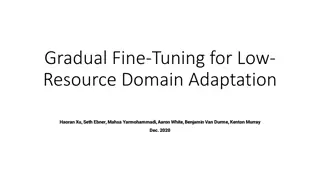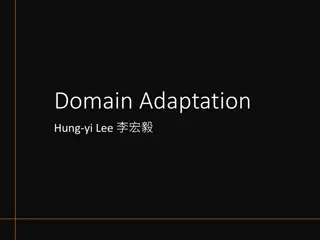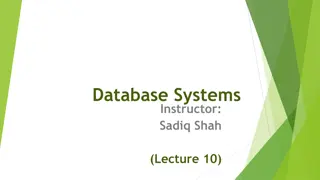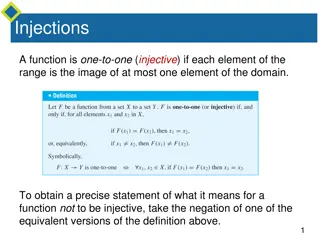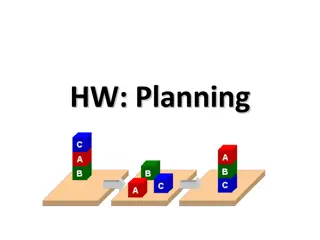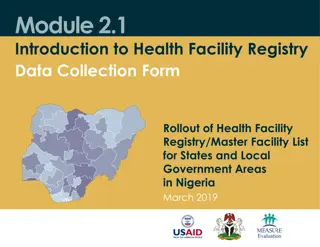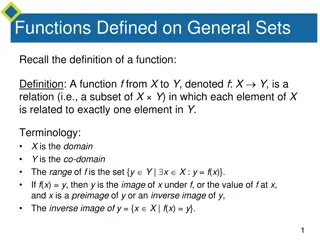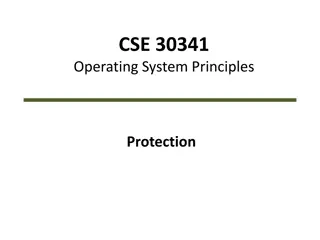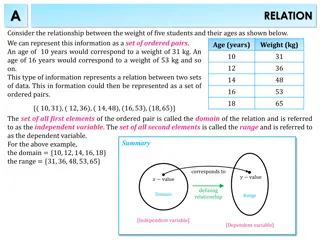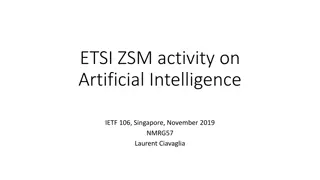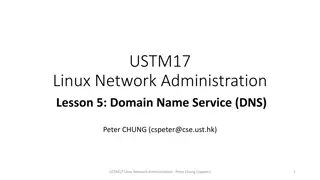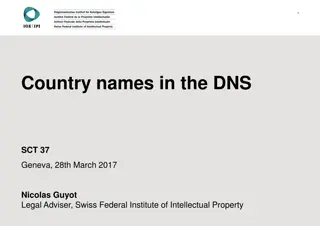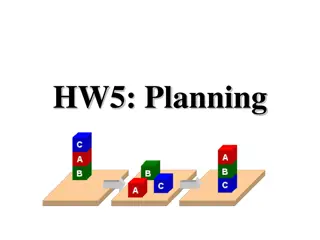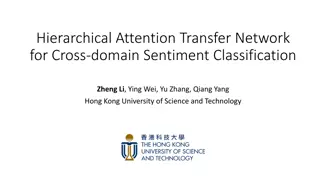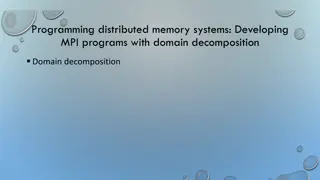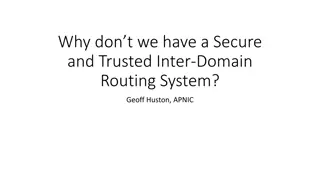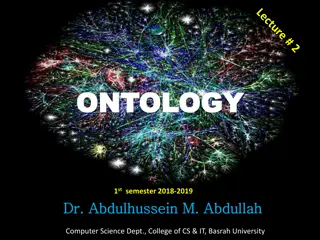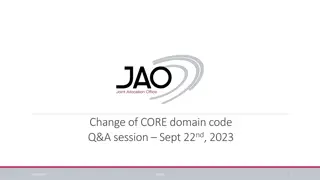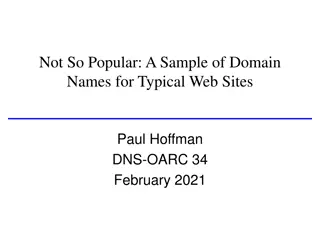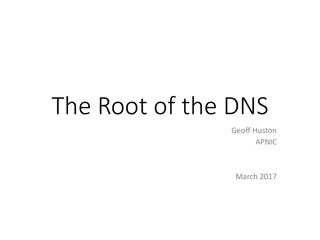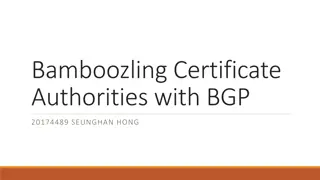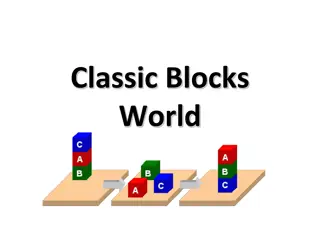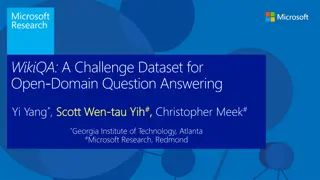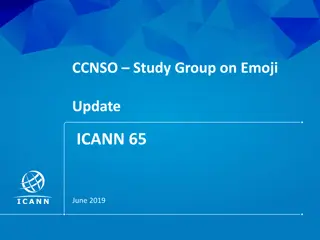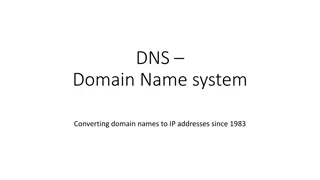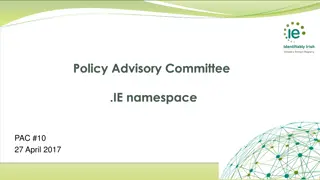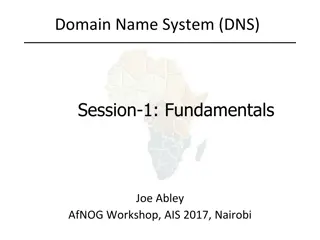Domain-Agnostic Information Model for Vehicle Data Transformation
The push towards a domain-agnostic information model from a vehicle-centric data approach is explored due to emerging industry requirements. COVESA projects like AUTOSAR Vehicle API and EV charging necessitate a shift. The proposal introduces the Hierarchical Information Model (HIM) to organize data
1 views • 10 slides
The Vital Role of Domain Knowledge in Data Science and How to Acquire It
In the dynamic field of data science, technical skills alone aren\u2019t enough to ensure success. Domain knowledge, or understanding the specific context of the industry you\u2019re working in, is equally important. Delving into the realm of data sc
1 views • 1 slides
Domain and Range of Functions
Understanding functions involves exploring concepts such as domain, range, and algebraic inputs. This content covers topics like constructing functions, common functions like quadratic and trigonometric, and solving functions based on given domain and range. It also provides practice questions to te
1 views • 21 slides
Gradual Fine-Tuning for Low-Resource Domain Adaptation: Methods and Experiments
This study presents the effectiveness of gradual fine-tuning in low-resource domain adaptation, highlighting the benefits of gradually easing a model towards the target domain rather than abrupt shifts. Inspired by curriculum learning, the approach involves training the model on a mix of out-of-doma
0 views • 17 slides
Maximizing the Potential of the .NG Domain: Key Insights from NiRA Workshop
Explore the significance of the .NG domain, managed by the Nigerian Internet Registration Association (NiRA), for the Nigerian internet community. Learn about NiRA's background, the Switchto.ng campaign, and the benefits of using .NG for e-commerce and online security in Nigeria.
0 views • 13 slides
Domain Adaptation in Machine Learning
Domain adaptation in machine learning involves transferring knowledge from one domain to another. It addresses the challenge of different data distributions in training and testing sets, leading to improved model performance. Techniques like domain adversarial training and transfer learning play a k
0 views • 16 slides
Integrity Constraints in Relational Database Systems
Integrity constraints play a crucial role in maintaining the accuracy and integrity of data in a database. They include domain constraints, entity integrity, and referential integrity, each serving a specific purpose to ensure data consistency and reliability. Domain constraints ensure values in a c
3 views • 12 slides
Injective and Surjective Functions
Injective functions map elements from the domain to the range uniquely, while surjective functions ensure every element in the co-domain has a corresponding element in the domain. The negation of injective means finding x1 and x2 in the domain with the same function value but not equal, whereas for
1 views • 26 slides
Introduction to PDDL Planning Domain
PDDL (Planning Domain Description Language) is a language based on STRIPS with various extensions originally defined by Drew McDermott. It is used in the International Planning Competition (IPC) series and offers a standard input for many planners. Tasks are specified using two files: domain file an
6 views • 13 slides
Steps to Establish a Master Facility List in Health Facility Registry
The process of establishing a Master Facility List (MFL) in a Health Facility Registry involves integrating data collection into routine facility visits, identifying data components, validating lists, and merging information at state level. Key elements include signature domain data (facility ID, ge
0 views • 34 slides
Theories of Human Development in Psychomotor Domain
The psychomotor domain involves the development of muscle skills associated with mental processes. Psychomotor development progresses through cognitive, associative, and autonomic stages, where individuals learn to perform new skills that involve both the body and mind. In the cognitive stage, one n
0 views • 12 slides
Functions: Definitions and Arrow Diagrams
Recall the definition of a function, where each element in the domain is related to exactly one element in the co-domain. Arrow diagrams can visually represent functions from finite sets X to Y. In this example, a function is defined from X = {a, b, c} to Y = {1, 2, 3, 4} using arrow diagrams, showc
10 views • 28 slides
Operating System Protection Principles
Explore the goals, principles, and implementation of protection in computer systems, including access matrix, domain structure, and capability-based systems. Learn how protection domains and access control are used to specify resource access, and delve into the concept of least privilege and dynamic
4 views • 21 slides
Relations and Functions in Mathematics
A relation is a correspondence between two sets where each element in the first set (domain) corresponds to at least one element in the second set (range). Functions are special relations where each element in the domain has a unique correspondence in the range. Surjective functions map the entire r
0 views • 12 slides
Best Demolition in Queens Domain
Are you looking for the Best Demolition in Queens Domain? Then contact Goodchap Group Demolition and Garden Clean Up. They are a small company dedicated to providing top-notch services in small demolition, rubbish removal, and gardening. Their friend
0 views • 6 slides
Zero Touch Network and Service Management Architecture Overview
Explore the ETSI ZSM ISG's initiative on Zero Touch Network and Service Management, focusing on creating an automated architecture supporting legacy and virtualized networks. Learn about the framework, architecture features, and services offered within the ZSM domain. Dive into E2E service managemen
0 views • 9 slides
MC-OOK Symbol Design for IEEE 802.11 - March 2018
Introducing MC-OOK waveforms with low peak-to-average power ratio for IEEE 802.11, utilizing 256-QAM modulation and 4 MHz bandwidth. The design methodology involves generating time-domain waveforms, transforming to frequency domain, and proposing symbols with and without DC subcarriers. Detailed sym
0 views • 20 slides
Domain Name Service (DNS) in Linux Network Administration
Domain Name Service (DNS) is a crucial scheme for resolving hostnames in a network, eliminating the need to record all hostnames in a local file. The Berkeley Internet Name Domain service (BIND) is a prominent DNS implementation providing efficient hostname resolution. DNS organizes hostnames in a h
0 views • 35 slides
Country Names in the Domain Name System (DNS)
The Domain Name System (DNS) plays a crucial role in attributing top-level and second-level domains to country names. This system is global and managed by ICANN, not national offices, allowing for unique attribution to one person. Examples of country names registered as second-level domains are prov
1 views • 7 slides
Introduction to PDDL Planning Domain Language
PDDL (Planning Domain Description Language) is a language based on STRIPS with various extensions, widely used in the International Planning Competition. It allows for specifying tasks via domain and problem files, representing predicates, operators, objects, initial states, and goal states. Blackbo
0 views • 11 slides
Hierarchical Attention Transfer Network for Cross-domain Sentiment Classification
A study conducted by Zheng Li, Ying Wei, Yu Zhang, and Qiang Yang from the Hong Kong University of Science and Technology on utilizing a Hierarchical Attention Transfer Network for Cross-domain Sentiment Classification. The research focuses on sentiment classification testing data of books, training
0 views • 28 slides
Developing MPI Programs with Domain Decomposition
Domain decomposition is a parallelization method used for developing MPI programs by partitioning the domain into portions and assigning them to different processes. Three common ways of partitioning are block, cyclic, and block-cyclic, each with its own communication requirements. Considerations fo
1 views • 19 slides
Cross-Domain Policies in Web Application Security
This content explores various aspects of cross-domain policies in web applications, including the Same-Origin Policy for JavaScript and Flash, their importance in protecting user data, potential risks of bypassing these policies, and the implications of trusting Flash content to read data from exter
0 views • 64 slides
Challenges in Establishing a Secure Inter-Domain Routing System
The daunting task of creating a secure and trusted inter-domain routing system poses significant challenges due to the decentralized nature of the internet. Addressing issues such as propagation of false routing information, ensuring correct reachability, and dealing with the lack of a clear truth m
0 views • 15 slides
Wyoming Eminent Domain Laws - Legal Updates and Negotiations
Wyoming Legislative Changes to Eminent Domain Laws outline the requirements for exercising eminent domain, including proof of public interest and necessity, diligent negotiations, and proper notification to property owners. The laws also emphasize the importance of good faith negotiations and fair c
0 views • 9 slides
Introduction to Ontology in Computer Science
Ontology is the study of existence, with applications in various fields like philosophy, linguistics, and computer science. In computer science, an ontology is an engineering artifact that defines a specific vocabulary to describe a domain, along with explicit assumptions about the vocabulary's inte
0 views • 33 slides
Important Update: Change of CORE Domain Code and Impacted Auction Information
An important update has been issued regarding a change in the CORE domain code, impacting auctions for the CORE region. The new domain code and its application date have been specified, along with details on affected auctions and files. Additionally, information on a test phase for long-term and sha
0 views • 4 slides
Domain Names for Authoritative DNS Servers
Researchers need to accurately define the types of authoritative DNS servers they sample when measuring server properties. This study focuses on collecting domain names used for web servers to assess typical domain name characteristics, highlighting the importance of accurate data for research purpo
0 views • 7 slides
The Domain Name System (DNS) Structure
The Domain Name System (DNS) is a distributed data collection utilizing a delegation hierarchy to reflect the hierarchical structure of domain names. This system resolves DNS names by discovering information through iterative searches, starting from the root zone. The process involves querying serve
0 views • 25 slides
Securing Domain Control with BGP Attacks and Digital Certificates
Exploring the vulnerabilities of domain control verification in the context of BGP attacks and the role of digital certificates in ensuring security. The process of domain control verification, issuance of digital certificates by Certificate Authorities (CAs), and the significance of Public Key Infr
0 views • 53 slides
Classic Blocks World Domain
Discover the classic blocks world domain, starting with the BW domain file and solving problems using planning domains. Learn about predicates, constants, and actions to manipulate objects effectively within the domain.
0 views • 10 slides
Open-Domain Question Answering Dataset WikiQA Overview
This content discusses the WikiQA dataset, a challenge dataset for open-domain question answering. It covers topics such as question answering with knowledge base, answer sentence selection, QA sentence dataset, issues with QA sentence dataset, and WikiQA dataset details. Various aspects of open-dom
0 views • 24 slides
Role of CCNSO Study Group on Emoji in the Internet Community
The CCNSO Study Group on Emoji was established to address the use of emojis as second-level domains within the ccTLD community. This study group aims to provide a comprehensive overview of the associated issues and current practices, potentially advising on further actions. The group was initiated i
0 views • 18 slides
Ensuring Secure Internet Connections: Understanding Domain Verification
This content delves into the importance of verifying domain authenticity to safeguard against potential online scams and phishing attempts. It explores how organizations like the Commonwealth Bank of Australia use domain name certification processes, encryption techniques, and trusted third parties
0 views • 54 slides
Evolution of Domain Name System (DNS) Since 1983
Domain Name System (DNS) has played a crucial role in converting domain names to IP addresses since its inception in 1983. This system has revolutionized the way we navigate the internet, translating human-readable names into machine-readable IP addresses. The distributed and hierarchical nature of
0 views • 23 slides
Proposed Policy Change for .ie Domain Registration
The proposed policy change for .ie domain registration aims to remove the requirement of proving a claim to the name. Instead, applicants with a genuine connection to Ireland can register any name they desire. This change is driven by a renewed focus on national resource development and aligns with
0 views • 15 slides
Domain Name System (DNS) Fundamentals
The Domain Name System (DNS) is a crucial component of the Internet, facilitating the conversion of human-readable domain names into IP addresses. This session covers the basics of DNS, the need for names in computing, challenges of the old HOSTS.TXT system, the distributed nature of DNS, its hierar
0 views • 29 slides
Perspectives on Domain Repositories
Domain repositories play a crucial role in supporting scientific research by providing specialized expertise for understanding and utilizing data. This content explores the importance of domain repositories, their challenges, and how collaborative efforts like RDA can enhance their functions to faci
0 views • 11 slides
Protein Domain Analysis and Gene Finding via HMMs
This content delves into protein domain analysis using Hidden Markov Models (HMMs) and gene finding techniques. It discusses the use of profiles, scoring matrices, and regular expressions to identify protein sequence motifs. Additionally, it explores the application of Psi-BLAST for sequence similar
0 views • 41 slides
Adding Header Rewriting to an O365 Domain for Domain Splitting & Migration
Learn how to add header rewriting to an Office 365 domain to support domain splitting and migration. Explore a proposed solution using OpenBSD, OpenSMTPd, and Postfix in the cloud, specifically on OVH. Understand the components involved in this cost-effective and scalable setup for managing email do
0 views • 24 slides
